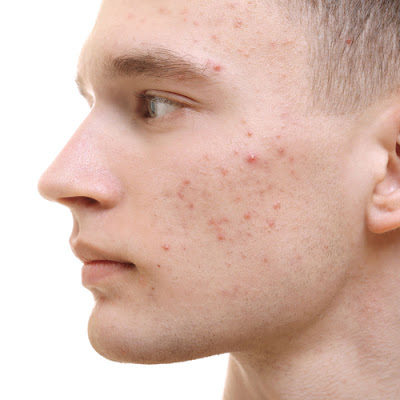Acne, also known as a pimple, zit or blemish, is an inflamed skin condition that happens when your skin pores get plugged by dead skin cells and oil. It results in blackheads, whiteheads or pimples, usually found on the face, neck, upper back, shoulders and chest. Acne can be triggered by hormonal changes, stress or even taking too many drugs. When you have acne, you should know what acne medications are available and which one works best for you. Some acne medications are available only by prescription, while some can be bought over-the-counter.
The most popular acne medication is benzoyl peroxide or salicylic acid. These substances work by eliminating the bacteria which cause the acne. When used on a regular basis, it helps to prevent the blockage of your pores. However, Benzoyl peroxide or salicylic acid should be used carefully as this may cause dryness of the skin which results in more acne breakouts.
Pimple treatments during puberty are different from adult acne. During adolescence, your body undergoes several changes which include the production of testosterone and other hormones responsible for the enlargement of the hair follicle. In addition, the oil glands which produce sebum becomes larger, resulting in increased production of oil, leading to the clogging of your pores. This results in the formation of whiteheads and blackheads. The combination of these factors results in acne.
The skin gets used to the medications and clears up after few weeks. However, if your acne persists, you should see a dermatologist. He can give you more powerful medications that can control the growth of bacteria and help to reduce the inflammation caused by pimples. There are many acne medications available over-the-counter. Some of these medications include Benzoyl peroxide, resorcinol, salicylic acid, sulfur, tretinoin, adapalene, retinoids, acne cysts and oral antibiotics. Your doctor may suggest specific medications based on the type of acne you have.
You must follow your doctor's dosage instructions and should avoid self-care measures. If your condition is severe, you should not self-medicate as it could worsen the condition and increase the likelihood of scarring. You should immediately contact your physician if you see any symptoms of acne infection such as redness, swelling, pus or soreness, persistent drainage or puss-filled redness.
Acne usually generates red pustules and papules on the skin surface. These lesions are the symptom of mild or moderate acne. Acne lesions can spread to the deeper levels of the skin and cause permanent damage to the cells beneath. In this case, it would be best to seek medical attention because the lesions may be signs of more serious conditions such as skin cancer or inflammation. For this reason, it is important to treat acne promptly even if the lesions are not painful.
Blackheads and whiteheads: This form of acne is different from a simple acne because the cause of the excessive oil in the pores is blocked. In addition to the whiteheads and blackheads, a person with acne may also develop "blackhead lungs" or "blackhead crypts". The excess oil blocks the pore and blackheads and whiteheads grow outwards due to the presence of dead skin, dirt and bacteria. This is why it can take weeks for acne to clear up once you start treating it properly. This form of acne usually occurs among adolescents and is more common in girls.
Papules: This form of acne is characterized by pimples, which appear red and inflamed. They are characterized by small, infrequent, pus-filled bumps that are generally found in the hair follicle areas. These pores may become clogged due to overactive oil glands, bacterial growth and/or dead skin cells. Papules are common in teenagers while cystitis or pimpleitis is more common in adults. Cystitis can spread to the skin surrounding the nose and mouth.
